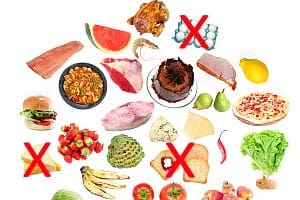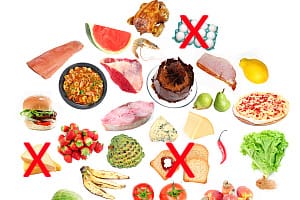statFor some women, it's about making an elegantement at special events or being a couple…

What Is an Elimination Diet and When Does This Approach Make Sense?
 An “elimination diet” is a methodical process for identifying specific types of food and drink that may be causing negative health effects. Although the popular media often uses this term interchangeably with other phrases like “detox” or “cleansing,” these are actually very different ideas. The goal of “detoxing” is to cleanse the system to remove supposed impurities, while the goal of an elimination diet is to identify food items that may be causing unpleasant physical effects.
An “elimination diet” is a methodical process for identifying specific types of food and drink that may be causing negative health effects. Although the popular media often uses this term interchangeably with other phrases like “detox” or “cleansing,” these are actually very different ideas. The goal of “detoxing” is to cleanse the system to remove supposed impurities, while the goal of an elimination diet is to identify food items that may be causing unpleasant physical effects.
The most common reason for undertaking an elimination diet is the suspicion that one may have previously unrecognized food allergies or intolerances. The symptoms of allergies or intolerances can range from annoying (things like rashes, indigestion, diarrhea, nausea, stomach cramps, or just a feeling of being unwell) to dangerous or even life-threatening (some people’s sensitivity to peanuts, for instance).
Before we start describing what an elimination diet entails, it is important to provide a warning: You should not attempt to pursue an elimination diet on your own. Such a diet should only be undertaken in collaboration with a trained physician or nutritionist.
At the most fundamental level, elimination diets are designed to pinpoint the “trigger foods” that may be provoking adverse reactions by systematically eliminating potential allergens or irritants from one’s diet in a controlled way over a period of time and monitoring the result. It is very much a “trial and error” process, in which the doctor or nutritionist recommends zero intake of a particular food that may be causing your symptoms for a period of two to four weeks in order to see whether removing that food from your diet results in a cessation of symptoms.
If the symptoms disappear and there is clinical improvement within two to four weeks, then the recommendation might be to eliminate that food entirely from one’s diet permanently. If there is no change after strict adherence to the elimination diet, then the suspected food is probably not the cause, and the doctor or nutritionist moves to the next suspected allergen on the list and tries eliminating it. Sometimes the doctor or nutritionist may recommend eliminating entire food groups, such as dairy, gluten (foods containing wheat or related grain products), sugars, legumes, or certain vegetables or fruits.
One of the many drawbacks of an elimination diet, especially when people try to undertake them on their own, is that they may attempt to eliminate an entire food group such as fruits, when in fact most allergic or intolerance reactions come from citrus fruits. Another drawback is that an elimination diet is hard to maintain—it makes food preparation difficult and “eating out” in restaurants with confidence can be near-impossible. Also, eliminating certain foods or whole food groups from your diet may rob you of essential nutrients, so your doctor or nutritionist may need to recommend supplements to keep you in good health.
All of these warnings and drawbacks aside, there are definitely situations in which an elimination diet can be a very helpful diagnostic tool if it is designed and managed correctly. Elimination diets have proven themselves useful when treating allergies, asthma, autoimmune disorders, skin conditions, arthritis, atherosclerosis and other cardiovascular diseases, neurodegenerative diseases such as dementia, ADD/ADHD, migraine headaches, mood disorders, and kidney problems.
So if you have symptoms that have not been successfully explained or resolved using other methods, or if you suspect that a certain food or set of foods may be triggering these symptoms, contact your medical doctor, chiropractor, or nutritionist and ask them whether an elimination diet might help to pinpoint the cause. You should know in advance that restrictive diets are difficult to follow, but if your lifestyle allows you to try them (that is, if you don’t eat out in restaurants most of the time), an elimination diet may help you to determine what is triggering your adverse symptoms and thus help to eliminate them.




